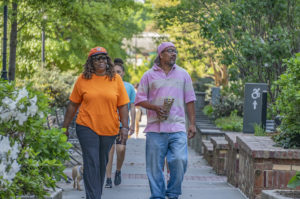 A newly updated report released by Piedmont Rising today finds that while Black North Carolinians account for 21% of the state’s population, they constitute 27% of North Carolina’s confirmed cases, and are experiencing worse health outcomes from the coronavirus, including accounting for 33% of the COVID-19 death toll in the state.
A newly updated report released by Piedmont Rising today finds that while Black North Carolinians account for 21% of the state’s population, they constitute 27% of North Carolina’s confirmed cases, and are experiencing worse health outcomes from the coronavirus, including accounting for 33% of the COVID-19 death toll in the state.
Key findings include:
- In North Carolina, where the latest Census records show that Black residents make up 21.4 percent of the population, while 27 percent of the confirmed cases of coronavirus in North Carolina are from Black residents, and 33 percent of deaths from coronavirus in North Carolina have been Black residents;
- On average, one-in-four people living in the ten counties in North Carolina with the highest percentage of Black residents report being in poor or fair health.
- Medicaid expansion would help reduce racial inequalities in health insurance rates in North Carolina;
- Research shows that the health of Black Americans is directly and adversely impacted by consistent exposure to instances of racial inequities in policing and violence against Black communities by law enforcement;
- The American Medical Association recommends mandating the “reporting of legal intervention deaths and law enforcement officer homicides to public health agencies” as a step toward understanding police brutality as an affront against the overall health of Black Americans.
“It’s unacceptable that Black North Carolinians are bearing the brunt of this pandemic,” said Piedmont Rising Executive Director Casey Wilkinson. “Recent policy decisions, especially the decision not to expand Medicaid, play a critical role in the disparate health outcomes along racial lines. Even more catastrophic would be the repeal of the Affordable Care Act, which could happen through a lawsuit the U.S. Supreme Court will take up as soon as this fall. Elected leaders should make clear that they oppose this lawsuit that would only exacerbate the inequities of our health care system and put desperately needed care out of reach for too many.”


